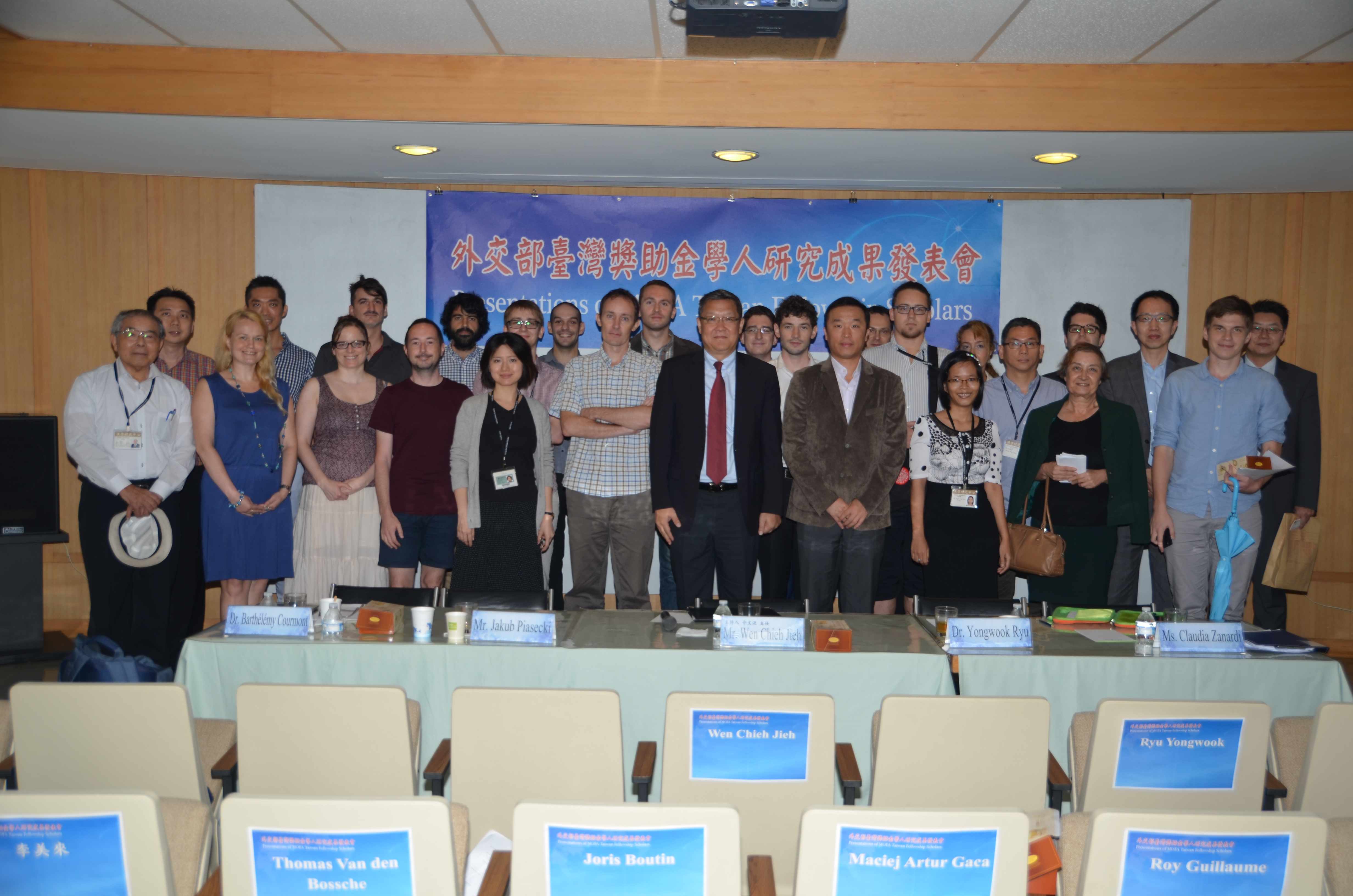
The Second Presentation of MOFA Taiwan Fellowship Scholars in 2015
The 2015 recipients of Taiwan Fellowship presented their research at the National Central Library on Tuesday.
Ministry of Foreign Affairs (MOFA) established Taiwan Fellowship in 2010 to award foreign scholars interested in conducting research in Taiwan. The presentations started with a brief remark by MOFA’s Wen Chieh Jieh, Director General of Department of Policy Planning. Mr. Wen said the Fellowship has been conducive to diplomatic planning in Taiwan. “The Fellowship cultivates friendly relations with Taiwan and allows the opportunity to learn about Taiwanese heritage and culture,” Mr. Wen said.
The first presenter was Dr. Barthélémy Courmont, professor at Université Catholique de Lille in France. Dr. Courmont’s research topic was on Taiwan’s diplomatic role in resolving the issues related to the Diaoyutai Islands. Taiwan, China, and Japan had all claimed sovereign control over the islands, which may potentially possess oil reserves, according to reports by the United Nations. He explained that President Ma, along with his predecessors, had declared that the sovereign rights of the islands belong to Republic of China under international agreements made after World War II. “Unlike Beijing and Tokyo, Taipei has consistently favored a multilateral and peaceful approach toward Diaoyutai, while the other two governments are more afflicted by militant and nationalist tendencies,” Dr. Courmont said.
Following Dr. Courmont was Mr. Jakub Piasecki, a researcher at the Poland-Asia Research Center in Poland. Mr. Piasecki’s research focuses on Taiwan’s lobbying efforts in the European Union (EU). He explained that the Taiwan Friendship Group, created in 1991, is currently the only body that represents Taiwan’s interests in the EU, pointing out the disparity with other countries, like Israel, which has 29 groups representing Israeli interests in Europe. “In regards to efforts promoting Taiwan’s interests in the EU, Taiwan Friendship Group has been more reactive rather than proactive,” Piasecki said.
The third presenter was Dr. Yongwook Ryu, a researcher at Australian National University. Dr. Ryu presented his research on Chinese economic statecraft and its implications to cross-strait relations with Taiwan. He explained that China, whose economy has seen huge growth in the past decades, has employed economic statecraft to increase its voice and leverage within the international arena. “Chinese economic statecraft may potentially provide a tool for Beijing to politically oppress Taiwan in the future, “ Dr. Ryu said. Dr. Ryu said that Taiwan had been relegated to such position because its economy is asymmetrically dependent on China.
After Dr. Ryu completed his presentation, the last presenter was Ms. Claude Zanardi, a PhD candidate at King’s College London in the United Kingdoms. Ms. Zanardi conducted her research on the role that Taiwan played in Imperial China’s coastal defense during the 16th century. She argued that Taiwan served as a frontier to isolate and prevent Western ‘barbarians’ from entering the mainland.
The presentations concluded with the members of the audience asking questions to the presenters. In a twist of event, Mr. Jakub Piasecki turned the direction of the questioning, asking a member of the audience, a MOFA official, why Taiwan had broken the custom of signing free trade agreements with countries that had already signed with China when it recently decided to forego deals with Switzerland and Chile, both of which had previously pledged economic cooperation with China. The official apologized for not being able to answer the question, citing his recent return from Slovakia. Mr. Wen asked other MOFA officials and participants within the audience if they could answer the question, but all is too complicated of international affairs to explain in short briefing. Perhaps this could be an interesting discussion topic for the future conference events.
The presentations thus promptly ended with announcement for a group photo.